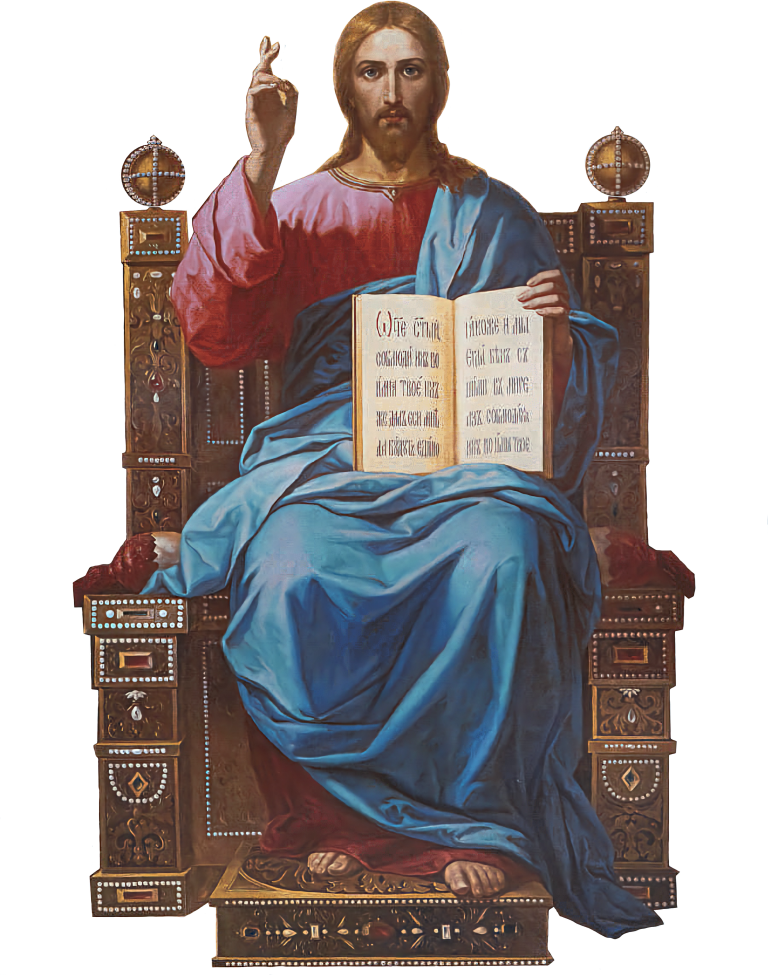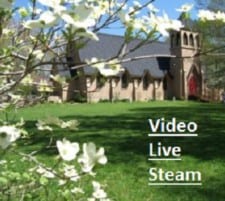Eyes to See Jesus for Who He Is
“And immediately he receive his sight, and followed him, glorifying God.” In the Name of the Father, and of the Son, and of the Holy Ghost. Amen.
As we all know, the best defense is a great offence. So, this Pre-Lenten Season, we have been proactively trying to recognize and engage those things which if left unattended will attack and prevent the joy and peace that is promised to those who live the more excellent way of charity in the Christian faith. So far, we have examined the motivations behind why we serve Jesus and the conditions of our hearts in relation to His transforming power, and now we turn to the topic of spiritual blindness, which we’ve all been born with and if it is left untreated it too can and will prevent us from seeing Jesus as we ought and from experiencing the blessed joy of that beatific vision.
We get this last point from our Gospel Reading in Luke 18:31ff where we see Jesus setting out for Jerusalem to accomplish all that the Scriptures said the Christ must do in order to reconcile all things to himself (cf.Col.1:20) – and when I say “all things” I mean “all things” from the Garden of Eden onward.
As Morning Prayer has reminded us over the past two weeks, God’s whole plan for the human family was for them to bear His image, but Adam and Eve fell from that lofty calling before it could be fully realized and they began to image the Devil more than the God who created them. But, here in today’s text, we are told that Jesus was about to raise man back up from where he had fallen. The original plan would be brought to completion as God in Christ would fashion a new man out of their present, fallen and soiled condition:
- Since His people had been exiled and handed over the Gentiles, so the Christ would be handed over to the Gentiles (23:22,25).
- Since His people had become a laughingstock among the Nations (Ps.44:14), so Christ would be mocked, spit upon, and shown no respect (Lk.22:63; 23:11,36).
- Because His people had fallen into the shame of nakedness after eating the tree of knowledge of good and evil (2:25; 3:7), so the Christ would be shamed and stripped naked by the tree of the Cross.
- Since His people had been beaten and defeated in fulfilling their calling, so the Christ would give His back to the smiters and be crushed for their iniquities.
- Because His people had been made subject to death, so the Christ would make Himself subject to death and be cut off from the land of the living.
Only when He had accomplished this, could He finally make fallen, sinful, shamed, failed, enslaved, and dead humanity into His own divine image.
Of course, the disciples from their point of view had no clue about what Jesus was talking about or planning (Lk.18:34); there was no way in their minds that such a road could be the one which led to success. In other words, they were just as spiritually blind to God’s plan as the beggar we encounter next was physically blind, and this is why Luke has recorded these two events side by side. Because both suffer from a kind of blindness – and the cure for both is to have faith in Jesus and His promise.
Now, probably one of the most ironic parts of our text, is that this blind man actually sees more than everyone else (including the disciples). When he heard that “Jesus of Nazareth” was passing by, he cried out “Jesus, Son of David” (v.38) – in recognition that Jesus was on His Messianic Mission. This blind man had heard the reports of Jesus’ miracles, had connected the dots, and now addressed Jesus as the Messiah in a great demonstration of faith. Thus, Jesus, in response to the man’s faithful persistence and Christological confession, opens His eyes, bringing light to the man’s darkness (Lk.1:78-79; Col.1:12-14).
And this is the miracle we seek for our own lives on this Quinquagesima Sunday, to be given eyes to see Jesus for who He is and then to follow Him with the eyes of faith into the most excellent way of charity (which is of course spelled out for us in our Epistle Reading taken from St. Paul’s “Homily for Weddings”). Jesus tells us in John 15:13 that there is no greater love than to lay down one’s life for one’s friends, which is what He is headed into Jerusalem to do, and once He was there, He told us, “As I have loved you, so ye are to love one another” (Jhn.13:34). Only when we have eyes to see His love for us in the mission He completes in Jerusalem, can we meaningfully begin to follow His example – So, let us memorialize that event once again at God’s altar and pray that He will give us eyes to see His love and work for us in It. For “the hour cometh and now is when the true worshippers shall worship the Father in spirit and in truth: for the Father seekers such to worship him.” Amen.



